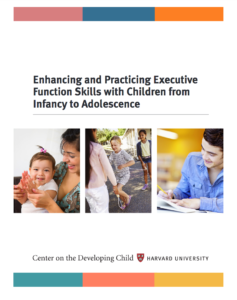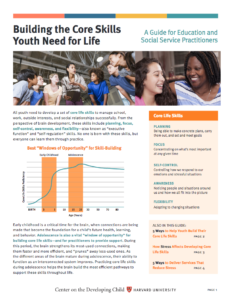Elementary Students with Depression Are More at Risk for Skill Deficits
 Early elementary students with symptoms of depression are much more likely to be at risk for academic deficits, according to new research. Read more »
Early elementary students with symptoms of depression are much more likely to be at risk for academic deficits, according to new research. Read more »
 Early elementary students with symptoms of depression are much more likely to be at risk for academic deficits, according to new research. Read more »
Early elementary students with symptoms of depression are much more likely to be at risk for academic deficits, according to new research. Read more »
 In recent years, “gender identity” has increasingly been recognized as a complex concept that goes beyond traditional definitions of masculinity and femininity. Society struggles to adapt to and appreciate the diverse experiences of transgender and gender-diverse (TGD) individuals, which contributes to intolerance, discrimination and stigma. In this context, TGD youths and their families increasingly present to pediatric providers for advocacy, care and referrals. Read more »
In recent years, “gender identity” has increasingly been recognized as a complex concept that goes beyond traditional definitions of masculinity and femininity. Society struggles to adapt to and appreciate the diverse experiences of transgender and gender-diverse (TGD) individuals, which contributes to intolerance, discrimination and stigma. In this context, TGD youths and their families increasingly present to pediatric providers for advocacy, care and referrals. Read more »
 Executive function and self-regulation skills are the mental processes that enable us to plan, focus attention, remember instructions, and juggle multiple tasks successfully. Children aren’t born with these skills—they are born with the potential to develop them. Read more »
Executive function and self-regulation skills are the mental processes that enable us to plan, focus attention, remember instructions, and juggle multiple tasks successfully. Children aren’t born with these skills—they are born with the potential to develop them. Read more »
 Resilience is the quality that allows you to “bounce back,” adapt, and persevere when you are faced with problems or challenges. Becoming more emotionally resilient will help you manage hard times and stress.
Resilience is the quality that allows you to “bounce back,” adapt, and persevere when you are faced with problems or challenges. Becoming more emotionally resilient will help you manage hard times and stress.
The following 10-point plan was developed to help you manage stress. None are quick fixes, but they will lead you toward a healthy and successful life. Read more »
Did you know that 1 in 5 kids has a learning difference—and 40% of kids with learning differences (LD) also have a mental health condition, such as anxiety or depression? Learn more about intersection of learning differences and anxiety and depression and the ways in which CHC can help. Read more »
 All youth need to develop a set of core life skills to manage school, work, outside interests, and social relationships successfully. From the perspective of brain development, these skills include planning, focus, self-control, awareness, and flexibility—also known as “executive function” and “self-regulation” skills. Read more »
All youth need to develop a set of core life skills to manage school, work, outside interests, and social relationships successfully. From the perspective of brain development, these skills include planning, focus, self-control, awareness, and flexibility—also known as “executive function” and “self-regulation” skills. Read more »
 Dysgraphia is a neurological disorder characterized by writing disabilities. In children, the disorder generally emerges when they are first introduced to writing.
Dysgraphia is a neurological disorder characterized by writing disabilities. In children, the disorder generally emerges when they are first introduced to writing.
For kids with dysgraphia, the effort of writing can get in the way of learning. Here’s a look at some classroom accommodations from Understood.org that can help kids with writing issues. Read more »
What is dyslexia? This one-page fact sheet from Understood.org provides essential information about what dyslexia is and is not and how to help kids with dyslexia. Read more »